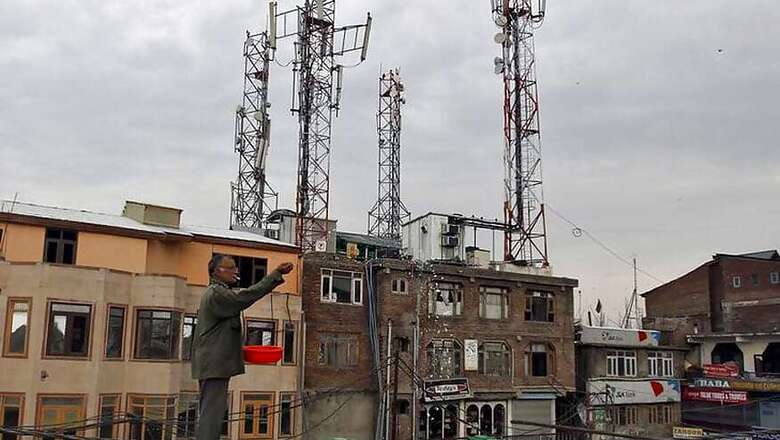
views
Large telecom operators including Bharti Airtel and Idea Cellular today lamented the high taxes, and spectrum costs being faced by the industry and asked the government for immediate relief to mitigate the woes of the stressed sector. While most of the speakers at India Mobile Congress inaugural eluded to India's digital vision and technological prowess, Idea Cellular MD and CEO Himanshu Kapania minced no words in highlighting the "severe financial and mental stress" that the industry is going through. "While it is important to talk about the vision 2020, it is also important to talk about the big elephant in the room that no one is talking about," Kapania said. He went on to red flag the industry's woes ranging from introduction and proliferation of bundled unlimited usage plans to "lack effective regulatory intervention", all of which had bearing on the industry's realisations.
"The recent market developments have drastically altered the dynamics of the industry, resulting in sector passing through a severe financial and mental stress," he said. Bharti Airtel MD and CEO for India and South Asia, Gopal Vittal too rued the high taxes in the industry. "Taxation on the industry is very high. It is in the range of 29-32 percent. Spectrum cost is one of the highest and tariff is one of the lowest. All of this need to change to realise dream and vision of Digital India," Vittal said. Vittal observed that through mergers and acquisitions (norms) were in place, the pace at which these are executed by the government is "very low". He acknowledged that the government is involved in easing norms for doing business, but maintained that the industry is facing problems on various fronts. Kapania said that industry is facing survival issues given the free fall in voice and data tariffs.
The voice tariffs have come down by half while data tariffs have fallen even more sharply, he noted. "The (recently) announced interconnect usage charges (IUC) deplete the industry of funds, besides creating inter-operator imbalances on account of high traffic asymmetry," Kapania said. He warned that the fault lines are already becoming visible as the industry has logged two percent degrowth in 2016-17. "The industry forecast for this year entails a decline of 10-12 percent including the impact of 58 percent reduction in IUC which will aggravate the financial stress in the sector," he said. Such inhibiting factors would not only impact the competitive structure of the industry but also "adversely hit" the government's revenue collection from the sector.
Kapania said while the Indian telecom market is gearing for a big transition to 4G services, there are millions of users who rely on 2G for connectivity and spend Rs 80-100 a month on mobility. "By enabling connectivity as low as Rs 10 per month, the tepid revenue growth prospects for the industry in the near term coupled with the alarming threat of higher NPAs will curtail industry's ability to invest," he said. Claiming that TRAI's policies would ensure the survival of only one technology while older technologies close down, he sought an immediate relief for the sector, from the government. "In such a challenging scenario, we believe there is urgent support intervention required from the Telecom Ministry in form of reasonable package, that can remove current financial stress in the industry," Kapania said.
Terming spectrum as key raw material for telecom services, Kapania said that the radio waves are the highest cost element for the industry. "With India having the world's highest spectrum prices, deferment of spectrum payment and reduction of interest rates are immediate steps that need to be taken. Rationalisation of taxes, cut in GST rate and lowering of spectrum charges...are much-needed respite that cannot wait any further," Kapania added. Earlier while speaking at the event Telecom Secretary Aruna Sundararajan said government's vision includes connecting the unconnected and ensuring access to best products and services for every Indian. "In the next 3-4 years, we need to ensure that using the mobile platform we can deliver quality services in areas like healthcare, banking, education among others," she said. Other areas of priority are establishing India as a manufacturing hub and employment generation, she added. Vodafone CEO Vittorio Colao, who sent in a video message, said the company has made significant investments. Besides, it has also trained more than 10,000 Indians. "They manage our global networks on behalf of the other operations of Vodafone... Our focus (in India) is essential of new offers for consumers and business customers," he added.
Watch Video: Xiaomi MI Mix 2 | Review | A Fascinating Smartphone Experience | News18 Tech




















Comments
0 comment